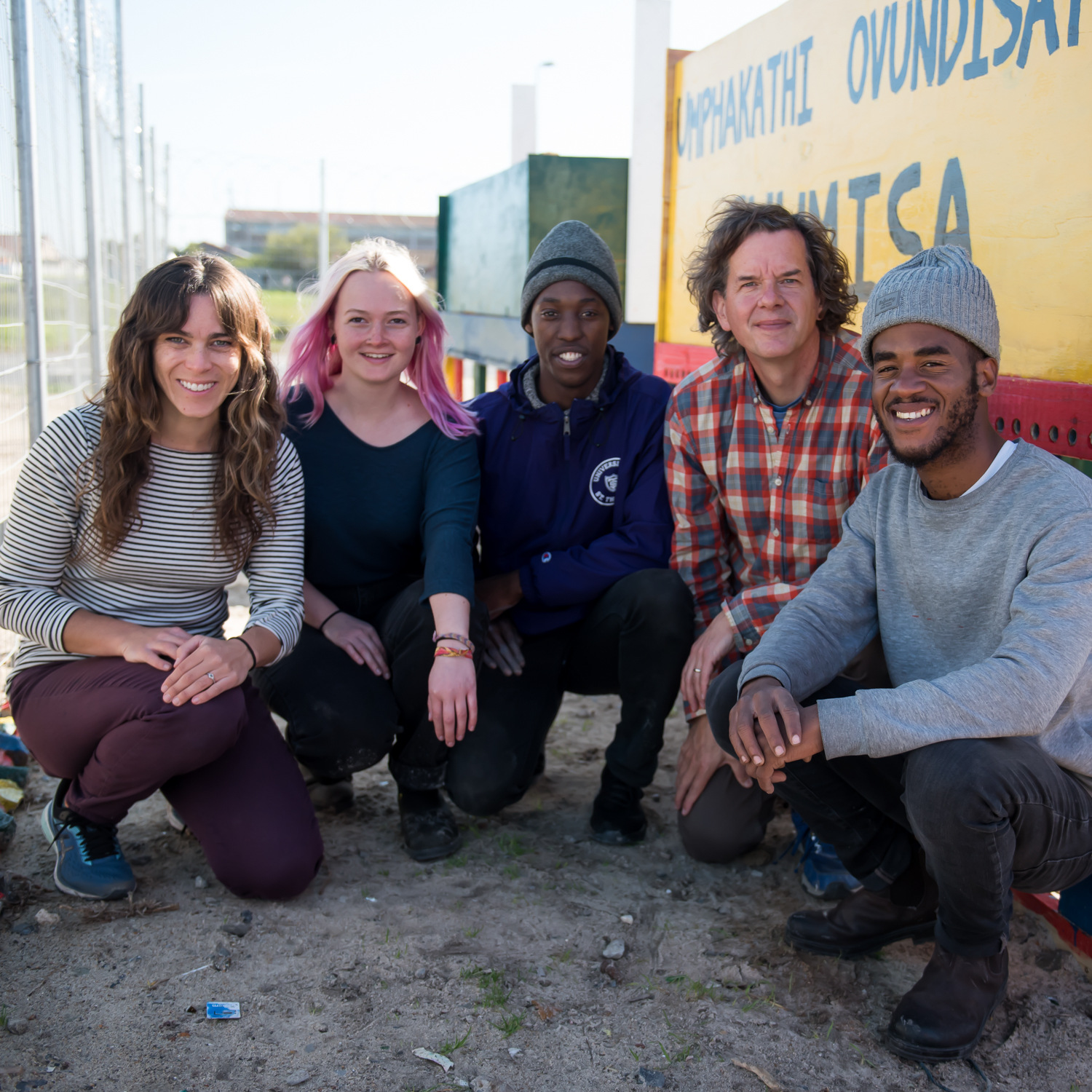Changemaker Catalyst Award recipient, Chiara Whitehurst traveled to Cape Town, South Africa to conduct a feasibility study on decentralized household vermicomposting and setting up nonprofit: Chumisa Community Composting. Chiara is Class of 2024, majoring in Ecology & Evolutionary Biology and Public Health.
Driving into Khayelitsha from Cape Town, you cross highway, elevated over the township. On this bridge there is a quote written in elegant calligraphic writing. But most mornings we don’t cross over this highway. We don’t see the sprawling letters in their taunting irony. Most days we take the coastal route. Driving past hordes of circling seagulls, blowing dunes, and tall grasses. Entering Khayelitsha, we first drive past the built houses. The ones the government first built for residents in the 80’s before the forced migration of people into the townships superseded the rate of construction. Then come the newer neighborhoods of Khayelitsha, where houses are constructed out of anything and everything. Shipping containers are a popular resource. Any large piece of metal in the general vicinity appears to have made its way into the hands of a resident handy with construction and willing to spend their time constructing and selling shelter.

Soon we reach the site. The site of our organization: Chumisa. Over the past six weeks this site has transitioned from a vacant lot covered in layers of garbage to a colorful collection of massive flow-through vermicompost bins, hot compost areas, and smaller vermicompost tiered bins soon to be distributed to households in the neighborhood. this was without doubt our biggest accomplishment, or rather, somewhere close to a miracle. Or not. Maybe all it shows is what happens when a little bit of resources gets allocated to those who usually have none.
On this site are usually nine people. The Kays: Adam (Principal Investigator hailing from University of St Thomas), Justa (Manager of St Paul-based food security non-profit Brightside Produce), Matilda (8, she will tell you she is 9 while crocheting you earrings but she is exaggerating) and Alvaro (5, current Minecraft- and Among Us- obsessive who will do anything for a laugh). Wezo and Sithembele: heads of Chumisa and both current Khayelitsha residents. Rhynn and Christian: current students at St Thomas here to study worms! (and people, and compost, but quantifiably more worms than people). And me: Tulane student trying to get this compost organization off the ground (and studying worms).
For the first few weeks our day-to-day involved surveying 100 households in Khayelitsha to assess their interest in being involved in a program where we would pay them for vermicompost produced from household food scraps. In Khayelitsha, waste management is sparse. City of Cape Town garbage pickup only occurs on paved roads, but most residents live on roads of dirt or sand. Consequently, most waste in Khayelitsha is dumped. Everywhere. By collecting food waste and turning it into compost we hope to both generate a supplemental income source for residents and also alleviate a serious health hazard.
“Chumisa” is an isiXhosa word meaning “growth” or “fertilization.” In addition to diverting food waste from dumping, we also hope to create a more economical source of compost that gardeners and farmers can use to fertilize their crops. The soil in Khayelitsha is made almost entirely of sand and is weak in nutrients. Most farmers need some fertilizer or compost to grow but struggle to find or afford it.

After the surveying process was completed, we chose 30 households that were willing to provide us with food waste and began collecting twice a week. At the same time, we began construction on our continuous flow through tables to house our worms. Unfortunately, construction was often slow due to loadshedding. South Africa’s electric grid cannot sustain its need and so electricity is turned off for residents for anywhere from two to eleven hours of the day, usually in two-to-four-hour blocks.
But somehow, in fits and starts, with much frustration and shaking of our fists at the electric grid it got done! A fence was built, garbage was ferried to the dump, four flow-through tables are built and in the process of being painted, and worms are (hopefully) happily eating away at the food scraps and cardboard collected from community members excited to be a part of this project. Vermicompost bins will be rolled out to houses in the next few months, hot compost bins will continue to heat and grow, and hopefully by the end of the year we will be able to pay households for the vermicompost they produce as we suggested in our surveys with them.

While de jure apartheid has ended its constructions, such as townships like Khayelitsha, certainly remain. Nevertheless, with just a few resources, allocated in the right areas, to the right people, with the right idea so much change can be made so quickly.
Driving into Khayelitsha, you cross highway, elevated over the township. On this bridge there is a quote written in elegant calligraphic writing: The People Shall Share in the Country’s Wealth.

Interested in learning more about Chumisa Community Composting? Check out our donation page to support our household vermicomposting initiative here. Full website coming soon!



